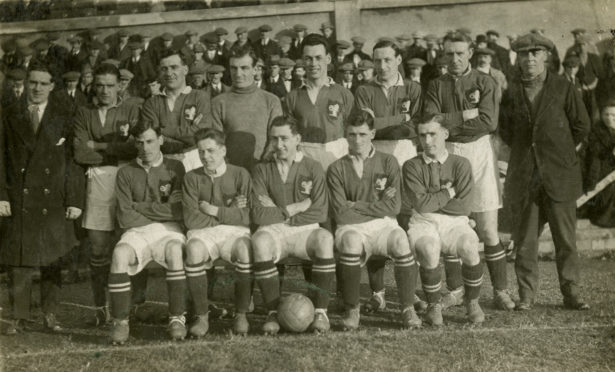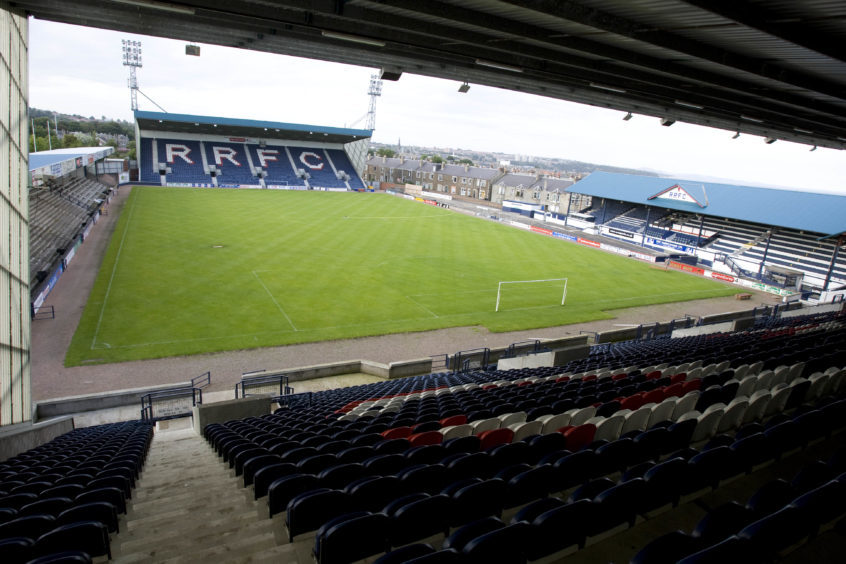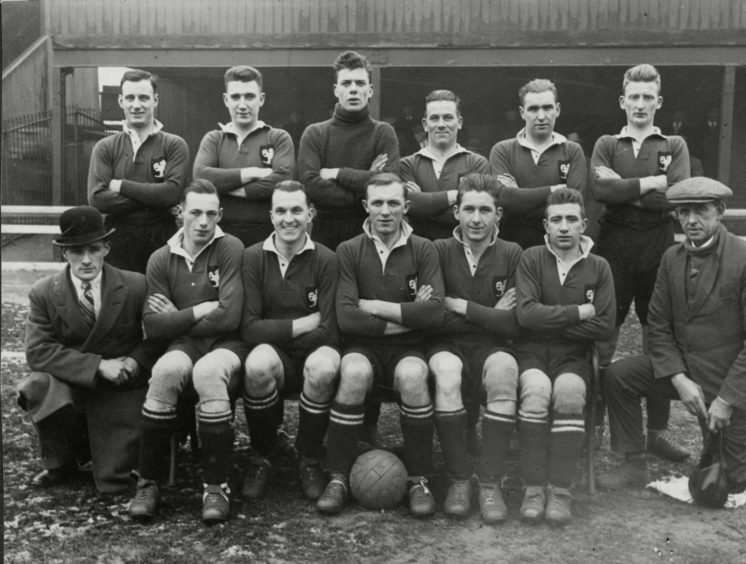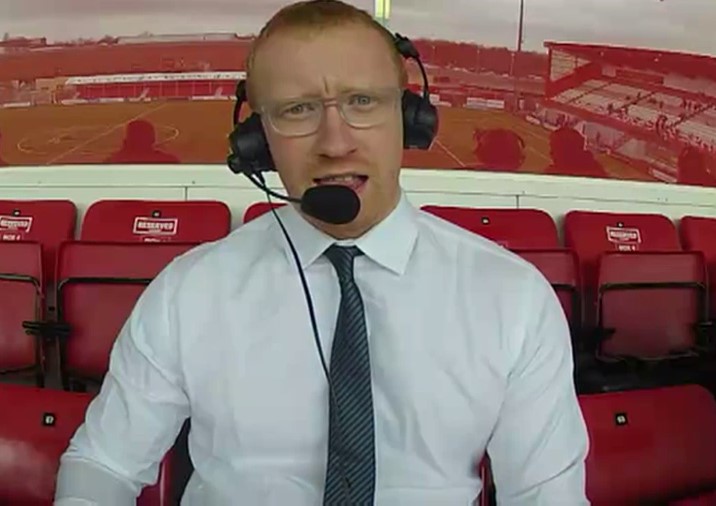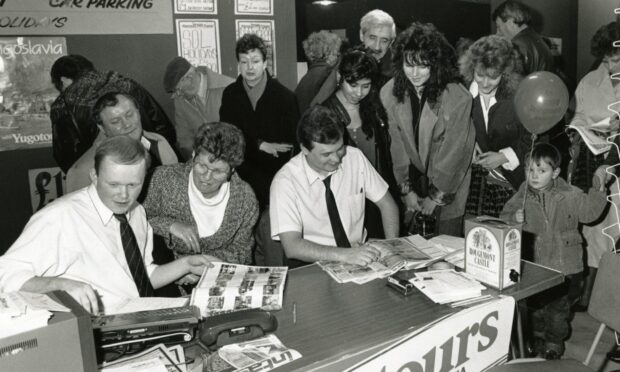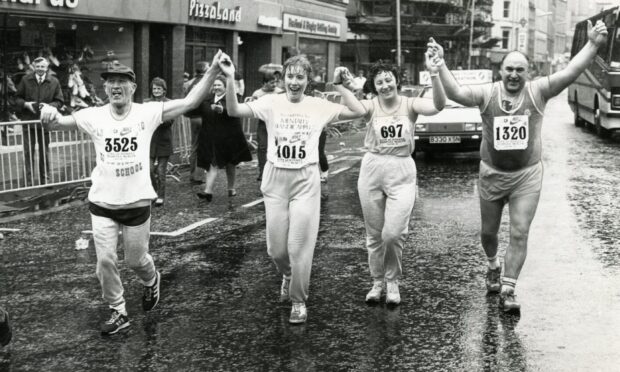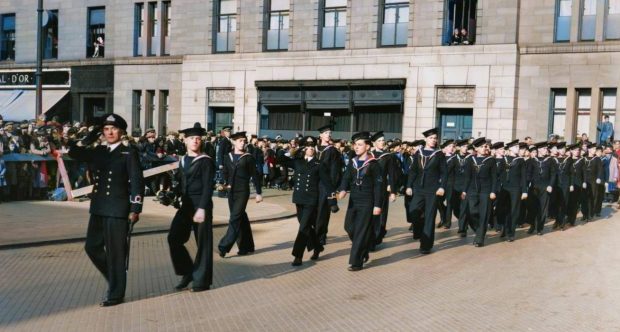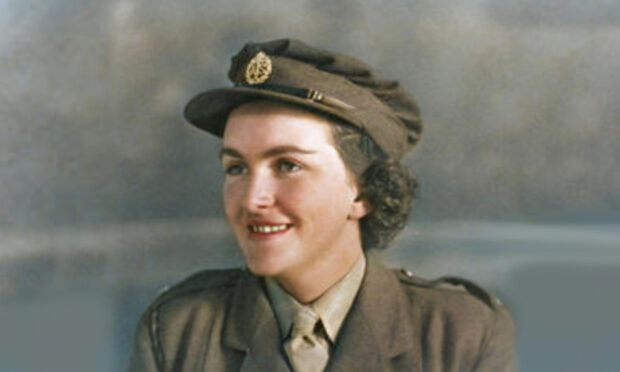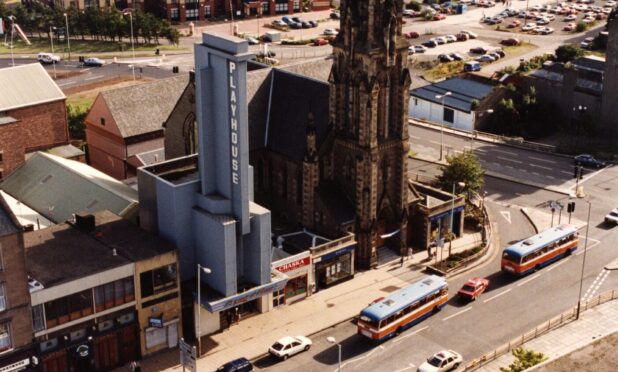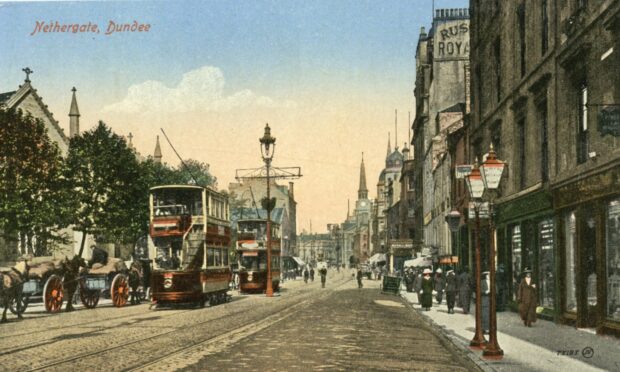The coronavirus pandemic has left Scottish football all at sea.
But back in 1923 Raith Rovers ended up making world headlines when they became the only football team ever to become shipwrecked.
The team, which was managed by James Logan, had enjoyed a successful trip to Copenhagen in the summer of 1922.
Canary Islands
They decided to return to Europe the following summer and took up the offer to play a handful of friendly matches on the Canary Islands.
A party of just 13 players, along with a handful of officials, sailed from Tilbury Docks on the Highland Loch alongside a Buenos Aires-bound consignment of chilled meat.
The players played cards, enjoyed sing-songs and talked a lot about the first-ever bullfight they were looking forward to seeing in Vigo which was their first port-of-call.
Problems arose in the Bay of Biscay on the Sunday morning during a violent storm when the captain of the passenger ship struck rocks off the Spanish coast.
Many passengers were still in bed when the command was made to don lifebelts and abandon ship.
Players were the last to abandon ship
There was no panic and the Stark’s Park players were the last to leave after shepherding women and children into the lifeboats.
Spanish fishermen came out in boats to tow the lifeboats where two sections of the party were separated.
Some were towed to the port of Corrubedo and reached land after five hours in the open boats dressed only in pyjamas and dressing gowns.
They looked for food but could not make themselves understood and the natives had no use for English money.
The party were again put to sea in a small motor boat.
They eventually reached the small village of Villagarcia where they discovered the other members of the team.
The Raith Rovers party had a meal and got in touch with a shipping agent at Vigo and were given instructions to take a train to a neighbouring port.
They were met off the train by an agent of the Nelson Line and the passengers walked for half-an-hour in the dark through a treacherous goat track.
‘Particularly gallant to a most attractive young lady’
Club captain Bill Inglis sent a telegram home where he told of the gallantry shown by the players during the rescue operation.
“What a commotion and what an experience,” he said.
“Many of the passengers were still in bed when the command was made to don lifebelts.
“I don’t suppose any of the party, with the exception of the goalkeeper, who during the war was a gallant A.B (able-bodied seaman), ever had a lifebelt on before, and several had difficulty in getting them adjusted.
“All were lined up while the boats were being lowered.
“Women and children went first, and it is to the credit of our party that they gave every assistance to the passengers and crew, and were last to leave the ill-fated ship.
“There was no panic.
“In all our trials and difficulties the first consideration of every representative from Kirkcaldy was the women and children.”
Inglis said the players gave assistance to passengers “coming down that awful goat track” and remarked that striker Tom Jennings was “particularly gallant to a most attractive young lady”.
They were put on board a motor launch and taken out to the Highland Loch which had been re-floated on high tide and travelled 30 miles under her own steam.
The journey to Las Palmas
The ship had been severely damaged but the Raith Rovers party recovered their luggage and the hamper containing all the team’s playing kit and equipment.
The following day they left the ship and sailed 60 miles back to Villagarcia.
Some managed to get a bed when they arrived and others had to walk about all night.
The following morning at 5am they were taken out on a modest tramp steamer and sailed practically all day to join the Darrow, of a South American line, which took them on the remainder of their journey to Las Palmas.
“What effect the experiences we have been through these last three days will have on the boys it is difficult to say but one and all seemed determined to give a good account of themselves,” said Inglis.
Raith won all six matches when they reached the Canaries, includng the first game against Spanish champions Vigo which took place in a bullring surrounded by 12 foot high rolls of barbed wire.
Police took to the field with drawn swords
In one game Cornelius Hilley, who was known as Con, was sent off for a tackle and refused to leave the pitch.
The referee left the field and returned with two police officers with drawn swords who marched Hilley to the pavilion.
Raith eventually took the matter up with the British consul and the club received an apology.
Whilst playing in Spain the club started to gather a following and one report suggested “football seemed to be usurping much of the popularity of the bull ring”.
TalkSport reporter Derek Clark said this little-known story “would seem a tad far fetched even for a fiction publication”.
Mr Clark, host of the Talkin Fitbaw podcast, said: “I love the idea that, more than a century ago, little old Raith Rovers decided to set sail for the Canary Islands – a voyage to what must’ve seemed like the end of the earth just to play some friendlies.
“The report describes brilliantly the terror these players must’ve went through, and in a time with no mobile phones or any means of communication, it’s somewhat of a miracle they managed to re-congregate and not only that, go on and win their fixtures.
“Any club moaning about playing two games in a week again should be made to read this heroic tale.”
Rovers won all six games on tour
Vigo 0-1 Raith Rovers (Jennings)
Vigo 1-3 Raith Rovers 3 (Jennings, James, Ritchie)
Victoria LPCI 0-4 Raith Rovers (Hilley 2, James, Morris)
Gran Canaria 1-5 Raith Rovers (Jennings 5)
Victoria 0-2 Raith Rovers (Jennings 2).
Marino 1-2 Raith Rovers (Cowie, Hilley)
The players who represented Raith Rovers on that tour were Brown, Inglis, McDougall, Barton, Morris, Collier, Hilley, Bell, Miller, Jennings, James, Ritchie, Cowie.
A goal up in the Olympic Stadium in Munich
Raith Rovers greatest moment in European football took place 72 years after the 1923 shipwreck.
The Kirkcaldy side qualified for the UEFA Cup after victory in the 1994 League Cup Final over a Celtic side including the likes of Paul McStay, John Collins and Charlie Nicholas.
🗣”He gave this incredible speech and you just didn’t want to let him down”@RaithRovers hero Julian Broddle says Jimmy Nicholl made them believe they could beat Celtic to League Cup glory 25 years ago today🏆🙌🏼
Full interview▶️https://t.co/tAUy140Fkp pic.twitter.com/9Cm7BJ5JmW
— Talkin Fitbaw⚽️ (@talkin_fitbaw) November 27, 2019
Played at Ibrox because Celtic were using Hampden Park as their home ground in the 1994-95 campaign while Celtic Park was redeveloped, the tie went first to extra time and then a penalty shoot-out.
Scott Thomson was the hero, saving McStay’s effort to give Jimmy Nicholl’s side – at the time playing in Scotland’s second tier – their first League Cup triumph.
For Rovers, it opened the door to a European adventure that no Raith fan on that incredible journey will forget.
Wins over GI Gotu of the Faroe Islands and Akranes of Iceland set up a second round clash with Bayern Munich who had just thrashed Lokomotiv Moscow.
The first leg was played at Easter Road and Rovers went down 2-0 in Edinburgh after two goals from Germany striker Jurgen Klinsmann.
The Bayern team also included the likes of Andreas Herzog, Mehmet Scholl and Jean-Pierre Papin and the experts were predicting a goal avalanche in the return leg.
But instead the Kirkcaldy club had the temerity to shock the bulk of the 27,000 crowd and send their band of 1,200 supporters into an orgy of delight when midfielder Danny Lennon put them ahead on the night from a 25-yard free-kick.
For 10 minutes the impossible dream looked as if it might come true and Trinidadian Tony Rougier even missed a gilt-edged opening to level the tie on aggregate four minutes after the restart.
But first leg hero Jurgen Klinsmann, who had recovered from an ankle injury to return to the Bayern side, found the net in the 52nd minute after Ronnie Coyle had slipped to allow Alexander Zickler to create the chance.
Marcus Babbel then completed Bayern’s 2-1 win on the night and 4-1 aggregate triumph with a second goal.
The German giants went on to win the competition, beating Benfica, PSV, Barcelona and Bordeaux in the final.
However, Bayern manager Otto Rehhagel said the games against Rovers were “the toughest we endured during the competition”.
